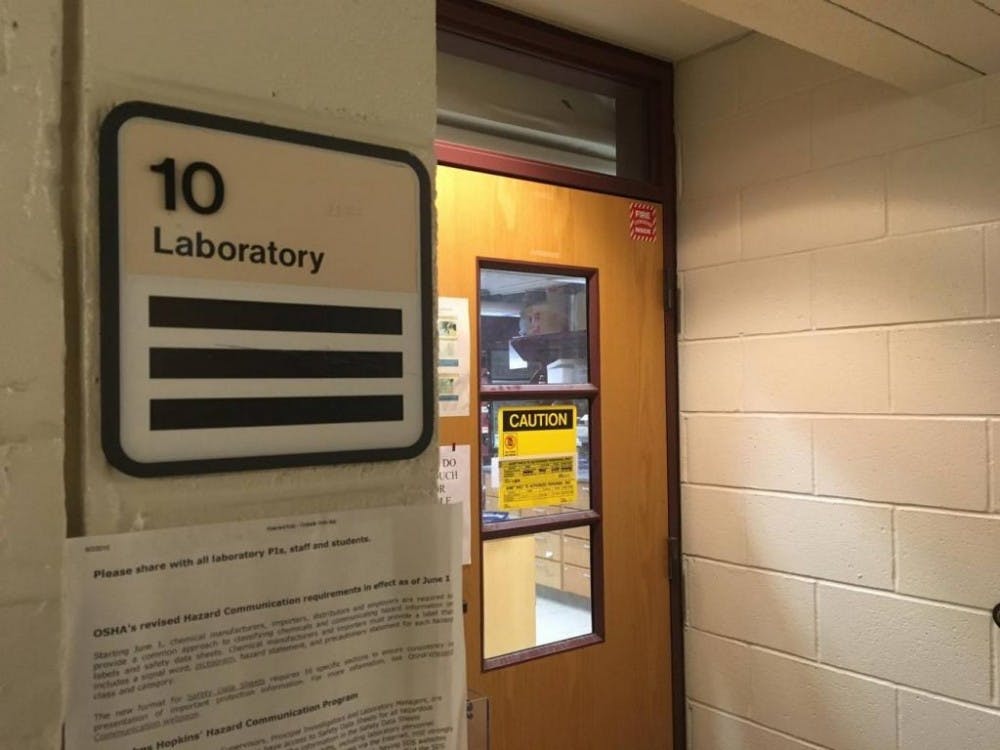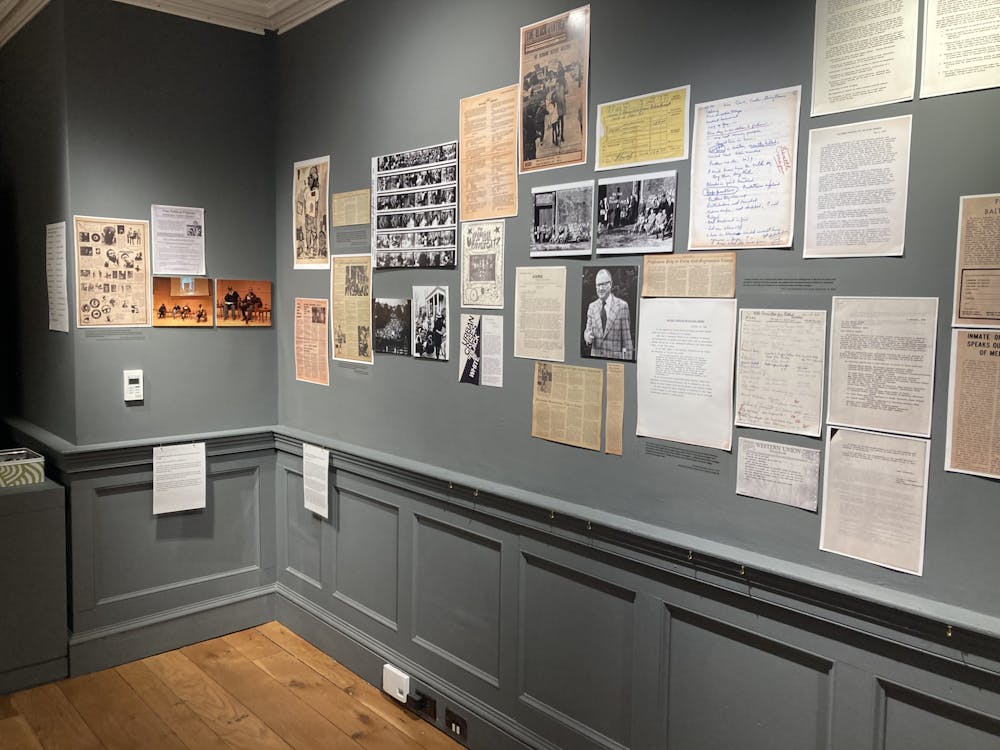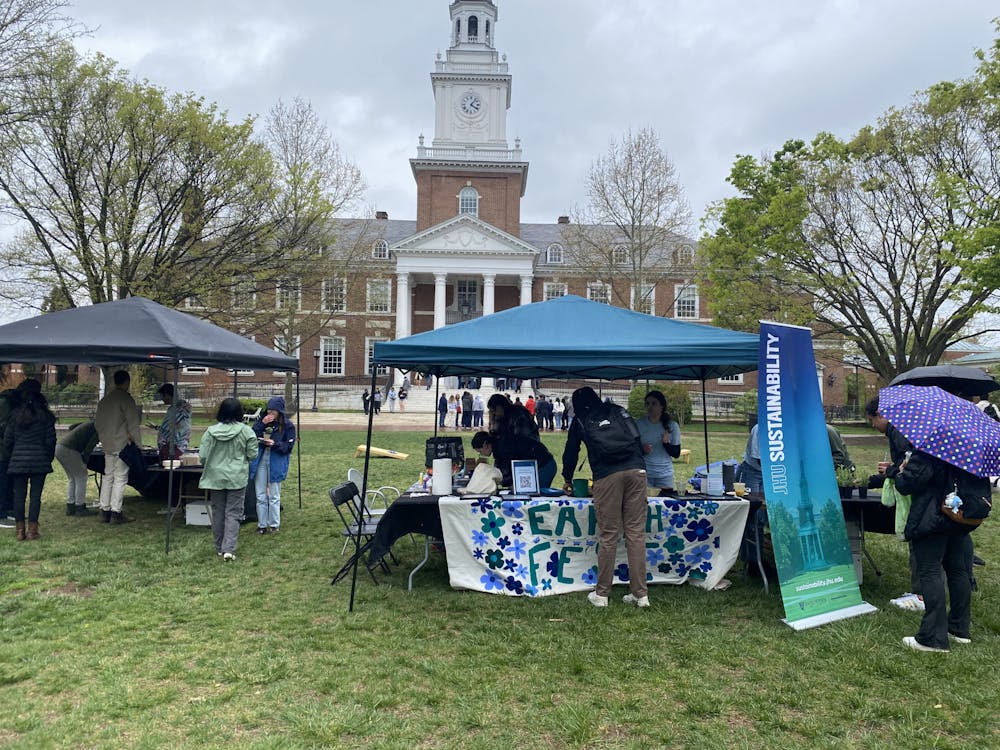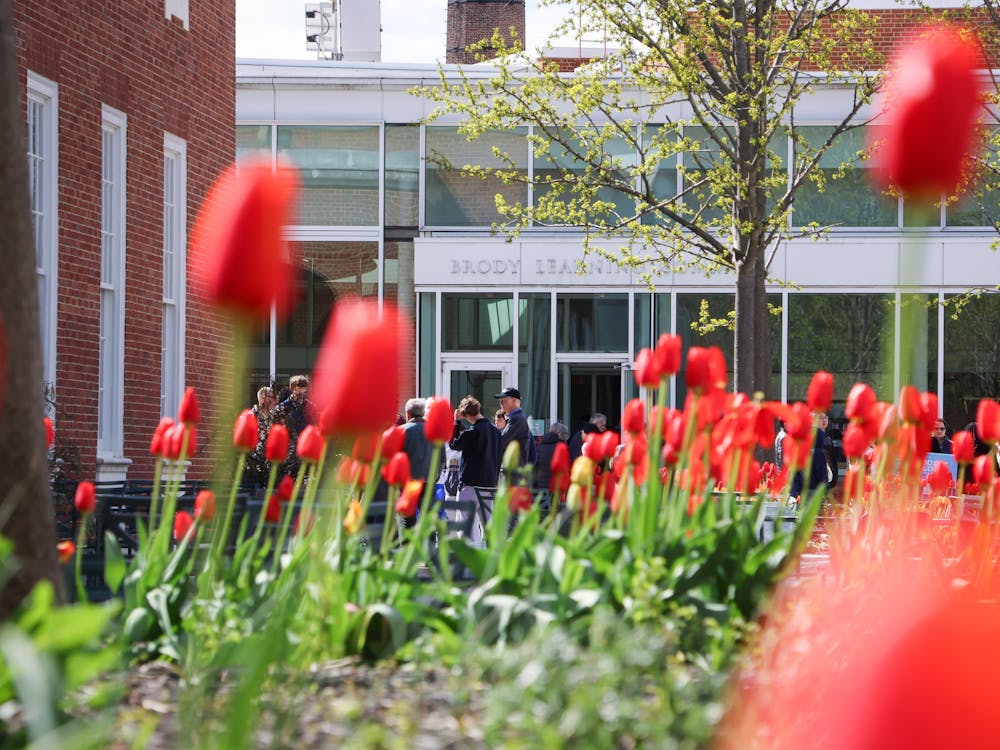How does the research-oriented environment at Hopkins affect students? Daniel Coit Gilman, the University’s first president, promoted a model that emphasized teaching and research that revolutionized higher education across the country. Gilman’s model made Hopkins the first U.S.-based research university.
Annually the University spends over $2 billion on research, according to the National Science Foundation (NSF). This is more than any other university in the nation. With its leading medical center and the Advanced Physics Laboratory (APL), which accounts for over $1 billion in funding by itself, Hopkins performs research in fields from astrobiology to zoology. Ours is one of the most highly cited universities in the world.
Jocelyne DiRuggiero, an associate research professor in the biology department, thinks that students should not miss out on the research experiences at Hopkins. Some majors, like biophysics, sociology and neuroscience all have a mandatory research requirement. DiRuggiero thinks that all natural sciences degrees at Hopkins should require research.
“I think many scientists at JHU feel that research and teaching are inextricably linked and that it is our responsibility to give to students an appreciation for the scientific approach, the excitement of discovery and the role that science plays in the advancement of society,” she wrote in an email to The News-Letter.
Many students either work on projects throughout the semester or have research experience. Some majors require a semester or more of independent work, while others get paid for their research or earn research credits. Students find opportunities at a number of Hopkins-affiliated or unaffiliated institutions, and they can receive help on applications from faculty advisors, professors and the Career Center.
Students also said that professors are often happy to work with student researchers. When applying to colleges, sophomore Robert Barr decided he wanted a research-focused university. Since arriving at Hopkins, Barr has joined two research groups and goes to the Gritsan Lab to study astrophysics.
“I’m trying to see the accuracy of one of the models of star formation using a specific dataset, but the approach I take is entirely up to me,” he said.
Although some students worry about how they can fit research hours into the rest of their lives, sophomore Zi-Yi Choo shared that undergraduate research at Hopkins is fairly flexible. Choo works at the Inoue Lab in cell biology.
“You have to understand your own schedule and not overcommit yourself,” she said. “When you do that and you’re proactive with your lab about when you’re going to go, and when you’re not going to go, people are understanding about your schedule. It’s about communication.”
She has been practicing doing live cell imagery and adds that her lab members have been supportive of her, while she learns the scientific procedures.
“You should do research if you’re interested in it,” she said. “If you’re not interested in it, it makes it difficult to devote much time to it. I don’t feel like it’s mandatory, but I feel like there is some sentiment throughout the undergrad population that you have to do research if you’re pre-med, but that’s not necessarily true.”
History major William Krause performs independent research on the influence of oil on developmental theory in Middle Eastern countries dependent on the industry. He believes that his research has helped him better understand the topic.
Krause explained that compared to research in the hard sciences, historical studies research focuses more on interpretation and comparison between different times or places.
“From my perspective, the subjects of hard scientific research — elements, biological systems, etc. — often behave predictably or uniformly,” he wrote in an email to The News-Letter. “Humans don’t, and it is the responsibility of the historian to situate herself or himself in a given historical context in order to provide readers with a close approximation to what a historical subject might have felt, thought or experienced.”
Research can also lead to unexpected results, and Krause urges students to be creative.
“In order to make a unique historical argument that responds to an existing body of scholarship, researchers should be able to analyze primary documents in ways that others yet haven’t,” he wrote. “Research also requires immense flexibility, given that archival work can often shoot out into unexpected directions.”
Students often spend time at multiple labs during their time at Hopkins. Sophomore Lalit Varada is currently looking to switch labs, and he noted that most students have a positive attitude toward research. Since research opportunities are generally accessible to students, many students switch labs if they feel like it does not suit them.
However, DiRuggiero says that professors feel that they have succeeded in mentoring a student when the student takes on their own project after some time in their lab.
“I feel that I have succeeded when an undergraduate student takes on his/her own research project after being in the lab for a little while,” she wrote. “Students should find a research topic that get them excited and motivated. They should be ready to do hard work and dedicate a good numbers of hours to their research.”
Sophomore Morgan Balster, who researches DNA lesions at the Greenburg lab, thinks that all students should seriously consider research during their academic career.
“I started doing research because I was considering grad school. It’s a good thing to have, and it’s kind of a waste of Hopkins resources if I wasn’t doing it. If you’re paying this much to go to a research university, you might as well do it,” she said.
Varada also recommends finding your interests before doing research. Sometimes labs pay students for doing research, particularly if it is over the summer or in a field that receives government funding.
“Kids at Hopkins really like research because they explore fields, and it is something free to tack onto their resume,” he said. “One of my friends didn‘t have a good experience with research. He wasn’t really interested in it. I found out that experimental condensed matter wasn’t the best choice for me, so I’m going into something new.”
















Please note All comments are eligible for publication in The News-Letter.